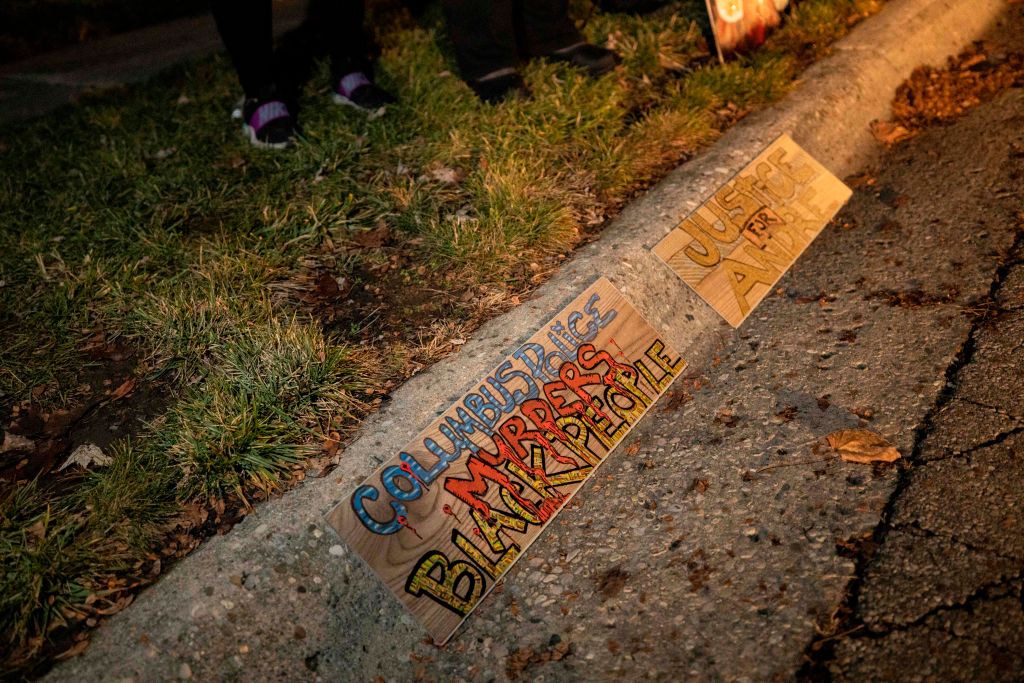A disgusting crime — and justice denied
A ruling in Colorado reveals the shame and folly of judicial textualism


A free daily email with the biggest news stories of the day – and the best features from TheWeek.com
You are now subscribed
Your newsletter sign-up was successful
This column contains graphic quotations from a legal case involving alleged child sexual abuse. It may not be appropriate for some readers.
Some events resist journalistic attempts at paraphrase and contextualization. The appalling case of Senon Louis Ramirez, a man whose conviction for child sexual assault was recently overturned by an appeals court in Colorado, is one such. Rather than attempt to explain the circumstances of the case myself, I will quote the minimum amount necessary from court documents to convey the unspeakable viciousness:
When the victim was 4 years old, Ramirez, her foster father, ordered her and her sister to approach him. He placed their hands in front of him, pulled down his pants and underwear, and masturbated. Ramirez ejaculated into their hands and made them drink the semen. The victim testified that Ramirez never touched any of her "private parts" and that she never touched his "private parts."
According to the victim's testimony, Ramirez told her than his seminal fluid was "milk."
The Week
Escape your echo chamber. Get the facts behind the news, plus analysis from multiple perspectives.

Sign up for The Week's Free Newsletters
From our morning news briefing to a weekly Good News Newsletter, get the best of The Week delivered directly to your inbox.
From our morning news briefing to a weekly Good News Newsletter, get the best of The Week delivered directly to your inbox.
Thanks to the Supreme Court's ruling in Kennedy v. Louisiana, one of the worst judicial decisions in American history, it is no longer considered "constitutional" for the state to administer the death penalty to convicted child rapists, even in the case of repeat offenders. I mention this by way of explaining how a man who has forfeited his right to live in any decent human society is still alive in 2018. But why does he remain at large? How did Ramirez manage to escape even the rather lenient sentence of 20 years to life to prison?
I pose this question because Ramirez does not dispute that the above-mentioned events took place. Indeed, he has pleaded guilty to a charge of indecent exposure stemming from the same incident. What he and his counsel have argued successfully before a panel of feckless egg-headed lawyers is that his actions do not meet Colorado's statutory definition of child sexual assault because the prosecution "did not prove that the defendant touched an intimate part of the victim or that the victim touched the defendant's intimate part."
Section 18-3-401(4) of the Colorado Criminal Code defines "sexual contact" as:
the knowing touching of the victim's intimate parts by the actor, or of the actor's intimate parts by the victim, or the knowing touching of the clothing covering the immediate area of the victim's or actor's intimate parts if that sexual contact is for the purposes of sexual arousal, gratification, or abuse.
If you have read this far, you understand the mockery of justice that has been performed in Colorado. Did Ramirez actually touch of any of the victim's "intimate parts"? Did the victim touch of any of his? No. But to believe that this textual lacuna is a compelling reason to overturn his sentence you would have to have the brain of a robot and the heart of a sociopath.
A free daily email with the biggest news stories of the day – and the best features from TheWeek.com
As Judge Janice B. Davidson, the lone dissenter in the 2-1 appeals verdict wrote, "it is both contrary to legislative intent and absurd that, for purposes of prohibiting sexual contact with children, a grown man's intimate parts includes his penis but not the sexual excretions of his penis." It is obvious to any experienced reader that the legislature meant to prohibit the conduct in which Ramirez engaged.
Why doesn't the law say so, then? A thousand reasons — modesty, an eminently humane inability to foresee the particularities of depravity to which men might sink, a misplaced faith in the common sene of judges — might explain why the specifics are lacking. Davidson's colleagues disagree. Their response to the Ramirez case is that legislators should rewrite the relevant language to make the prohibition against actions like those of Ramirez explicit. In the meantime, this animal goes free in a world where there are more children.
There are two lessons to be gleaned from this travesty. One is that earthly justice is no substitute for the perfect justice of heaven, which awaits Ramirez, who is 80 years old. The other is that, whatever might be said for and against its application in certain legal contexts — patent law, taxation, the continued application of the Voting Rights Act half a century on — the judicial philosophy known as "textualism" is of limited use in cases where crimes against the natural law are at issue. To suggest that state legislators in Colorado did not intend to proscribe Ramirez's actions when writing the statues quoted above beggars belief. It is only by means of the most unprincipled application of pseudo-legal reasoning that a decision like that of the appeals court could be reached. Ramirez's victims and the nation in which he will be at large deserve better.
Ramirez is a monster. Whether he repents of his crimes is between him and his creator. His attempts to evade earthly justice do not speak to his contrition. The success of his appeal makes me ashamed to be an American. It is a reminder that in cases involving the welfare of children where the intention of legislators is apparent, there should be loftier considerations than the mere letter of the law. No supposed principles are worth this.
Matthew Walther is a national correspondent at The Week. His work has also appeared in First Things, The Spectator of London, The Catholic Herald, National Review, and other publications. He is currently writing a biography of the Rev. Montague Summers. He is also a Robert Novak Journalism Fellow.
-
 Local elections 2026: where are they and who is expected to win?
Local elections 2026: where are they and who is expected to win?The Explainer Labour is braced for heavy losses and U-turn on postponing some council elections hasn’t helped the party’s prospects
-
 6 of the world’s most accessible destinations
6 of the world’s most accessible destinationsThe Week Recommends Experience all of Berlin, Singapore and Sydney
-
 How the FCC’s ‘equal time’ rule works
How the FCC’s ‘equal time’ rule worksIn the Spotlight The law is at the heart of the Colbert-CBS conflict
-
 Gunman kills 6, himself at Colorado Springs birthday party
Gunman kills 6, himself at Colorado Springs birthday partySpeed Read
-
 Columbus police fatally shoots Ma'Khia Bryant, 16, quickly releases body-cam footage
Columbus police fatally shoots Ma'Khia Bryant, 16, quickly releases body-cam footageSpeed Read
-
 Austin police, feds searching for ex-sheriff's deputy accused of killing 3, in Sunday's 2nd mass shooting
Austin police, feds searching for ex-sheriff's deputy accused of killing 3, in Sunday's 2nd mass shootingSpeed Read
-
 At least 8 dead in Indianapolis FedEx shooting
At least 8 dead in Indianapolis FedEx shootingSpeed Read
-
 Scalise says GOP will 'take action' on Gaetz if DOJ moves ahead with 'formal' case
Scalise says GOP will 'take action' on Gaetz if DOJ moves ahead with 'formal' caseSpeed Read
-
 Watchdog report: Capitol Police knew about potential for violence on Jan. 6, but held back
Watchdog report: Capitol Police knew about potential for violence on Jan. 6, but held backSpeed Read
-
 Former classmate arrested in 1996 disappearance of college student Kristin Smart
Former classmate arrested in 1996 disappearance of college student Kristin SmartSpeed Read
-
 Report: Gaetz associate has been cooperating with federal investigators since last year
Report: Gaetz associate has been cooperating with federal investigators since last yearSpeed Read
